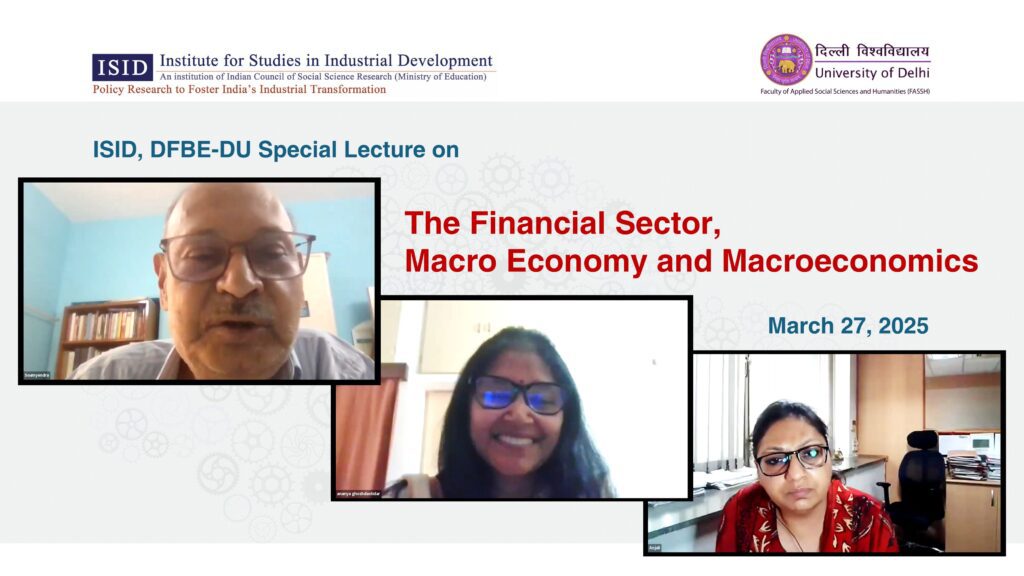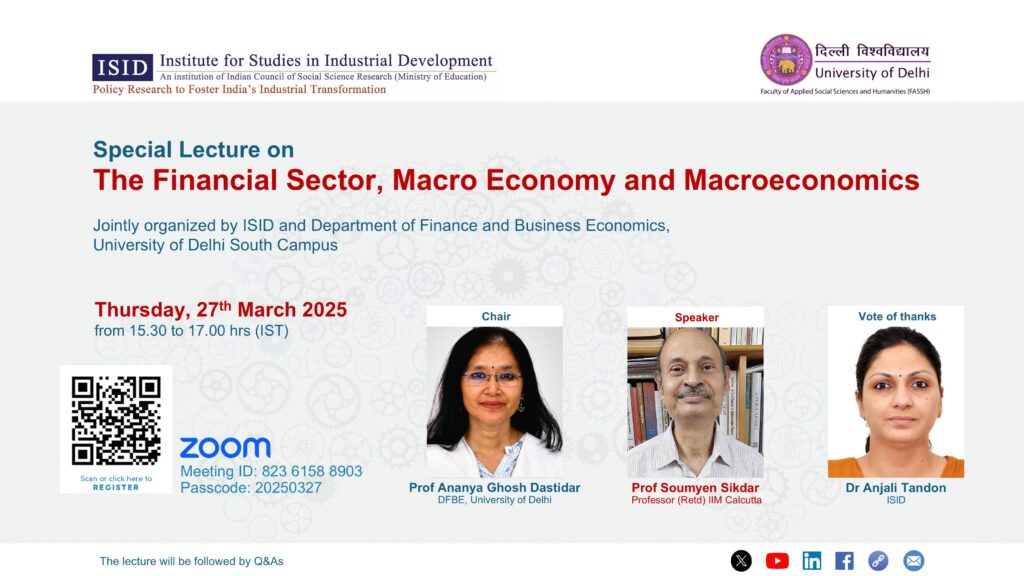 |
| Prof Soumyen Sikdar, Professor (Retd), IIM Calcutta, delivered a lecture on “The Financial Sector, Macro Economy and Macroeconomics” at ISID on March 27, 2025. The lecture examined the recurrence of financial crises throughout history, the destabilising effects of under-regulated finance, and the limitations of standard macroeconomic models in capturing the dynamics of asset markets. Prof Sikdar highlighted how financial volatility, driven by deregulation and speculative bubbles, has repeatedly disrupted real economic activity and called for a rethinking of macroeconomic frameworks, especially in light of Keynesian insights and post-GFC realities. The session was organised in collaboration with the Department of Finance and Business Economics (DFBE), University of Delhi South Campus, and was chaired by Prof Ananya Ghosh Dastidar (DFBE, University of Delhi). Dr Anjali Tandon from ISID delivered the vote of thanks. |
 |
| Click here to REGISTER | INVITE
Meeting ID: 823 6158 8903 | Passcode: 20250327 |
| Abstract:If one looks at the operations of the financial (or asset) sector in history, one is struck by the number of major crises that have originated in it. Just to pick the more spectacular ones: the South Sea Bubble, the Great Depression, the bubble economy of Japan, the East Asian Crisis, the dot com bubble in the USA and the Global Financial Crisis of 2007-09. Since finance or credit is the lifeblood of business, any disturbance there unleashes destructive forces that cause severe damage to production and employment (recessions) in the real sectors. And many of these devastating crises have come at the end of extended periods of upswing and optimism in the stock market-the roaring twenties and roaring nineties. Finance has become synonymous with volatility, fragility and weapons of mass economic destruction.
Carefully designed regulations, most seriously undertaken after the Great Depression, did much to tame the wild forces of finance. But financial deregulation that started in the 1980s in the USA and spread rapidly to Europe, Japan and other countries as part of sweeping free market reforms has undone over a very short period the accumulated gains of decades. The emerging market economies (EME) were forced to deregulate as part of the SAP. Not surprisingly, financial crises have resurfaced with terrifying frequency. Thanks to prudent macro management, India has remained relatively immune to the periodic bouts of wanton destruction. This lecture will focus on:
|

